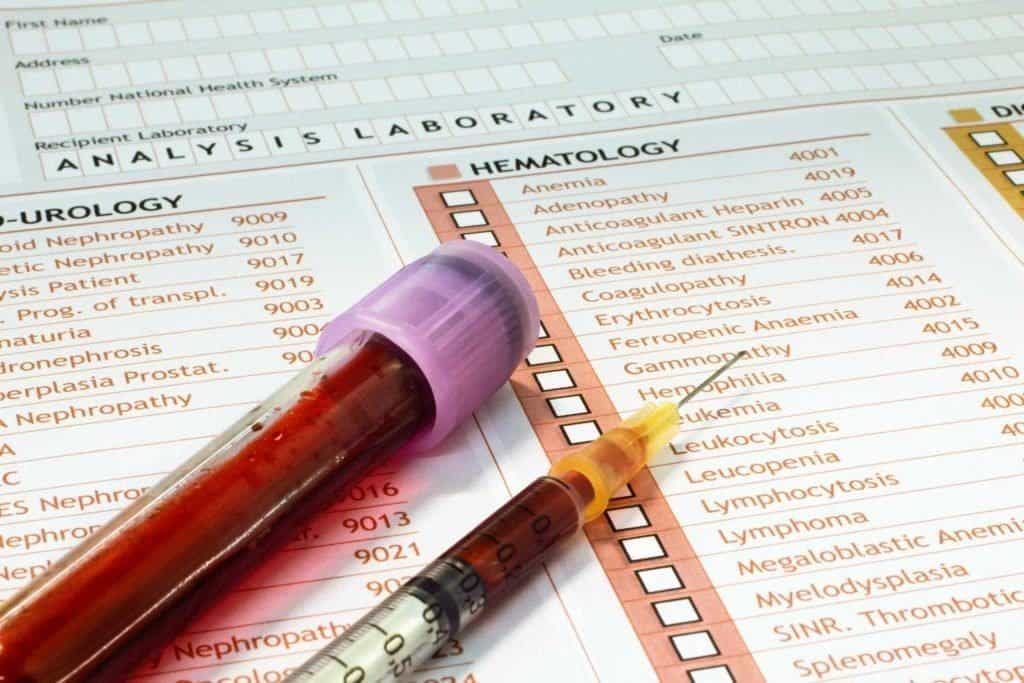Contents:
Medical Video: What Your Blood Type Says about Your Health ǀ disease risk and Blood Groups
Several recent studies have found a correlation between a number of diseases with certain types of blood groups that are owned. How can?
The blood type that you have is determined by the substance in the blood (which is inherited from our parents) which is found in the outer surface of the red blood cells in the body. This microscopic substance interacts with the immune system which can affect your risk of certain diseases. So, whether it's blood type A, B, AB, or O, you may be more vulnerable or even immune to heart problems, cancer, or other diseases.
Even so, this research is still too early to be able to draw conclusions, and experts also have not succeeded in finding a definitive explanation of the correlation. Blood type cannot be changed, however, knowing the potential risks from the outset will greatly help you determine what precautions are appropriate for you.
If your blood type ...
Type A
Blood type A is 20% higher risk of stomach cancer than blood group B or O. While blood type AB has a 26% risk of this disease.
Stomach cancer is caused by the H. pylori bacteria. Although about two-thirds of the human population is the host of these bacteria, it is likely that people with blood type A and AB have an immune system reaction that is more sensitive to cancer-causing bacteria, according to Gustaf Edgren MD, PHD, an epidemiologist at Karolinska Universitiy Hospital Sweden . Edgren is also one of the researchers on the phenomenon of this blood type.
To prevent: limit consumption of preserved meat (sausages, corned beef, bacon) that are rich in nitrates. Nitrates in the body can be converted into supporting components of cancer.
In addition, blood type A has the highest risk of heart disease when compared to group O.
Type B
Some people with blood type B have a risk of 20% more susceptible to type 2 diabetes compared to blood type O.
As with blood type A, type B blood is associated with a risk of high blood pressure and heart disease. Furthermore, blood type B is rated 11% more susceptible to coronary artery disease.
In fact, the average non-O blood group has an increased risk of up to 60-80% for developing fatal blood clots; types that can rupture and spread to the lungs. Blood types A, B, and AB are also at high risk for coronary heart disease, according to a study from the Harvard School of Public Health. Other studies have linked non-O blood groups with greater risk of inflammation, which can explain these relationships.
To prevent: manage risk factors related to heart disease, such as high blood pressure and diabetes with a healthy lifestyle, and medicine doctors can keep your heart in top condition.
Type AB
Blood type can affect brain function with age, according to a recent long-term study by the University of Vermont. People with rare AB blood type, only about 10% of the world population, have a higher risk of cognitive impairment when compared to other blood groups.
According to Mary Cushman, the hematologist who played a role in this study, the conclusion was drawn based on the results of research that showed a relationship between cardiovascular conditions (blood clotting factors and proteins in the blood) that can affect the brain's work function. Especially the problem of thinking, such as the learning process or remembering the list of items, which is a standard test that is commonly done during cognitive testing.
Although the above reasons explain enough, researchers have not been able to know the exact mechanism of the relationship.
To prevent: regular exercise has a positive impact on cognitive function. Physical activity will bring more oxygen to the brain. Do at least light exercise for 30 minutes 5 times a week. Challenge the brain with new things, such as learning a new language, reading difficult books, playing puzzles, and other things that require the brain to work.
Type O
Blood type O has up to 23% immunity to heart disease compared to other blood groups, according to research from the Harvard School of Public Health. In addition, genes that build blood type O make people who have more immune to pancreatic cancer up to 37%.
However, group O turns out to be more susceptible to gastric ulcers. Gastric ulcer is caused by the H pylori bacteria. "This blood type modifies the body's immunological response to these bacteria, but we don't know yet how it is," Edgren said.
What's more, group O is associated with lower egg production in women compared to other blood groups.
To prevent: avoid various common risk factors for diseases, such as smoking, excessive alcohol consumption, and being overweight. A healthy lifestyle and diet can increase egg production.
READ ALSO:
- Is the Blood Type Associated with Personality?
- Guide to Living a Blood Type Diet
- 5 Health Facts Related to Blood Type












